Design Museum announces Beazley Designs of the Year winners
Seesaw installation Teeter-Totter Wall, by Ronald Rael and Virginia San Fratello with Colectivo Chopeke won the design accolade, s elected by a jury chaired by journalist Razia Iqbal and including fashion designer Samuel Ross and material innovator Seetal Solanki. The winners of the annual awards demonstrate how design can suitably respond to issues of social justice, climate change and the pandemic
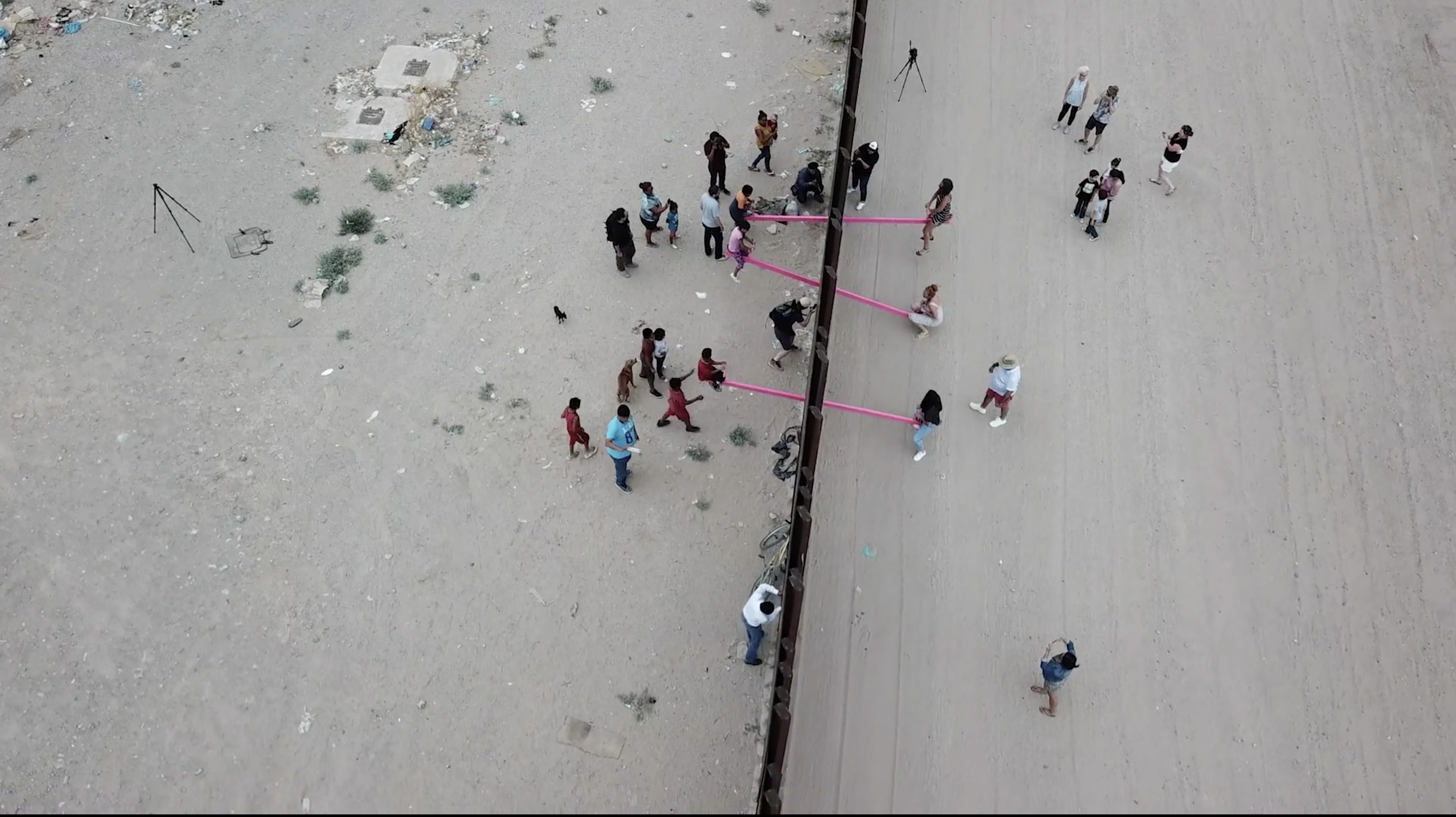
London’s Design museum announced the recipients of the annual Beazley Designs of the Year. Winners include Alyssa Eckert’s 3D rendering of SARS-CoV-2, Telfar’s vegan leather, gender neutral bag, Brick arches by Hong Kong protestors, ModSkool by Social Design Collaborative, vegan meat by Impossible Foods, Colectivo Lastesis’ protest performance denouncing sexual violence against women and LGBTQ communities, and the Teeter-Totter Wall, a seesaw installation by Ronald Rael and Virginia San Fratello with Colectivo Chopeke which popped up at the USA-Mexico border in 2019.
Chaired by BBC News broadcast journalist Razia Iqbal, the jury included material designer Seetal Solanki, fashion designer Samuel Ross, Google AI principal designer Matt Jones and artist Camille Walala.

The Teeter-Totter Wall was nominated winner of the Transport category, and also picked by judges as the awards’ overall winner. The seesaw installation was installed at the border allowing kids from both sides to play together. It was only up for 20 minutes before being dismantled, but in that short time it united the two sides by play in a way that was both touching and memorable. ‘This was an idea that really moved the judges,’ says Iqbal. ‘[It’s] not just something that felt symbolically important, it talked about the possibility of things; that all kinds of things are possible when people come together with great ideas and determination.’
‘It is great to see a project that is seriously playful and playfully serious is the winner of our Beazley Designs of the Year Award for 2020,’ echoes Tim Marlow, Director of the Design Museum. ‘The Teeter-Totter Wall (...) encouraged new ways of human connection and struck a chord that continues to resonate far beyond El Paso in the USA and Juarez in Mexico. It remains an inventive and poignant reminder of how human beings can transcend the forces that seek to divide us.’
All of this year’s winners, Marlow notes, ‘contain powerful messages of change and demonstrate design’s capacity to explore new ideas that confront some of the difficult issues the world currently faces.’
Explore the full shortlist from the Beazley Designs of the Year.

Impossible Burger 2.0, ‘A Better Meat for the Planet’ by Impossible Foods was awarded in the product category. "Some of the reasons [it] really stood out to be the panel and myself was this notion of food being a format for design as we move further into the twenty-first century,’ said judge Samuel Ross. ’The idea that meatless, carbon-neutral food products can carry the same semantic language in the form of visual and product representation through taste, touch, feel and density really feels like a step forward into a far more conscious way of food consumption’

Alyssa Eckert’s rendering of SARS-CoV-2 was one of the most ubiquitous images of 2020, and won the accolade in the graphics category. ’The rendering exacerbates and emphasises the characteristics of the virus and the threat we were facing, to communicate that to the public, but also be part of the solution in how we might respond to it with vaccines and the like,’ said member of the jury Matt Jones, Principal Designer at Google AI
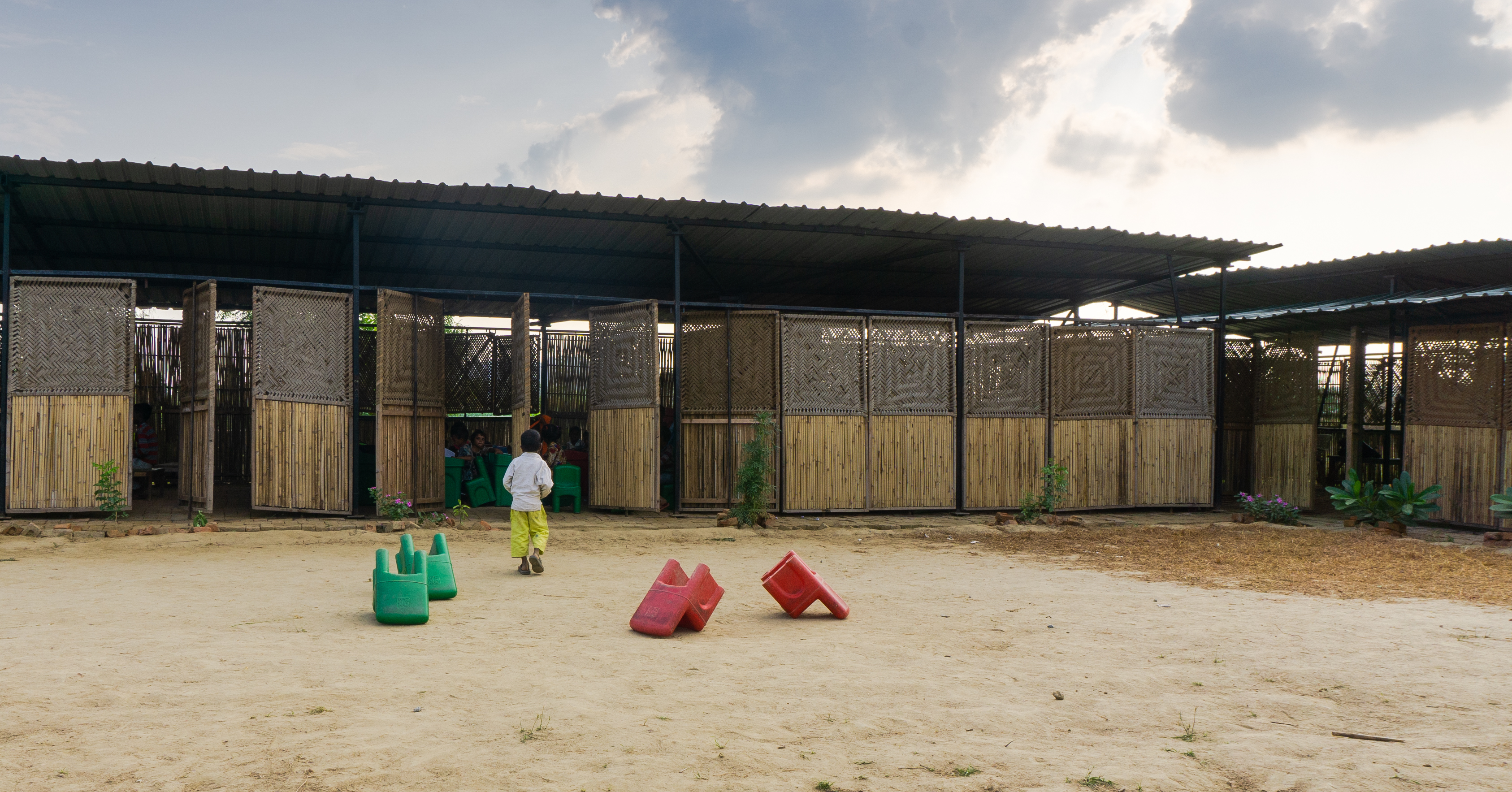
Winner of the architecture category, the ModSkool by Social Design Collaborative is a structure for a school that can be easily installed and dismantled, created to respond to forced evictions of farming communities on the floodplains of the Yamuna river in India. ’An elegant piece of design addressing a real critical situation and providing genuine social good,’ was the comment of Edwin Heathcote, Architecture and Design Critic at The Financial Times and member of the Beazley Designs of the Year jury

The Telfar bag had already been dubbed ’the accessory of the decade’, and this award in the fashion category cements its importance in the world of fashion design in 2020. The makers of this vegan leather, gender neutral bag was chosen for its ability to ’redefine the relationship between themselves and their customers, so much so that owning a Telfar bag is not just owning a brilliant product, it’s about making a vote for things to be done differently,’ said Emily King, the Beazley Designs of the Year exhibition curator. ’Telfar have redefined what luxury means and, in an era where true luxury is having a functioning health and social security system, I think their slogan - ‘Not for you, for everyone’ - rings very true’
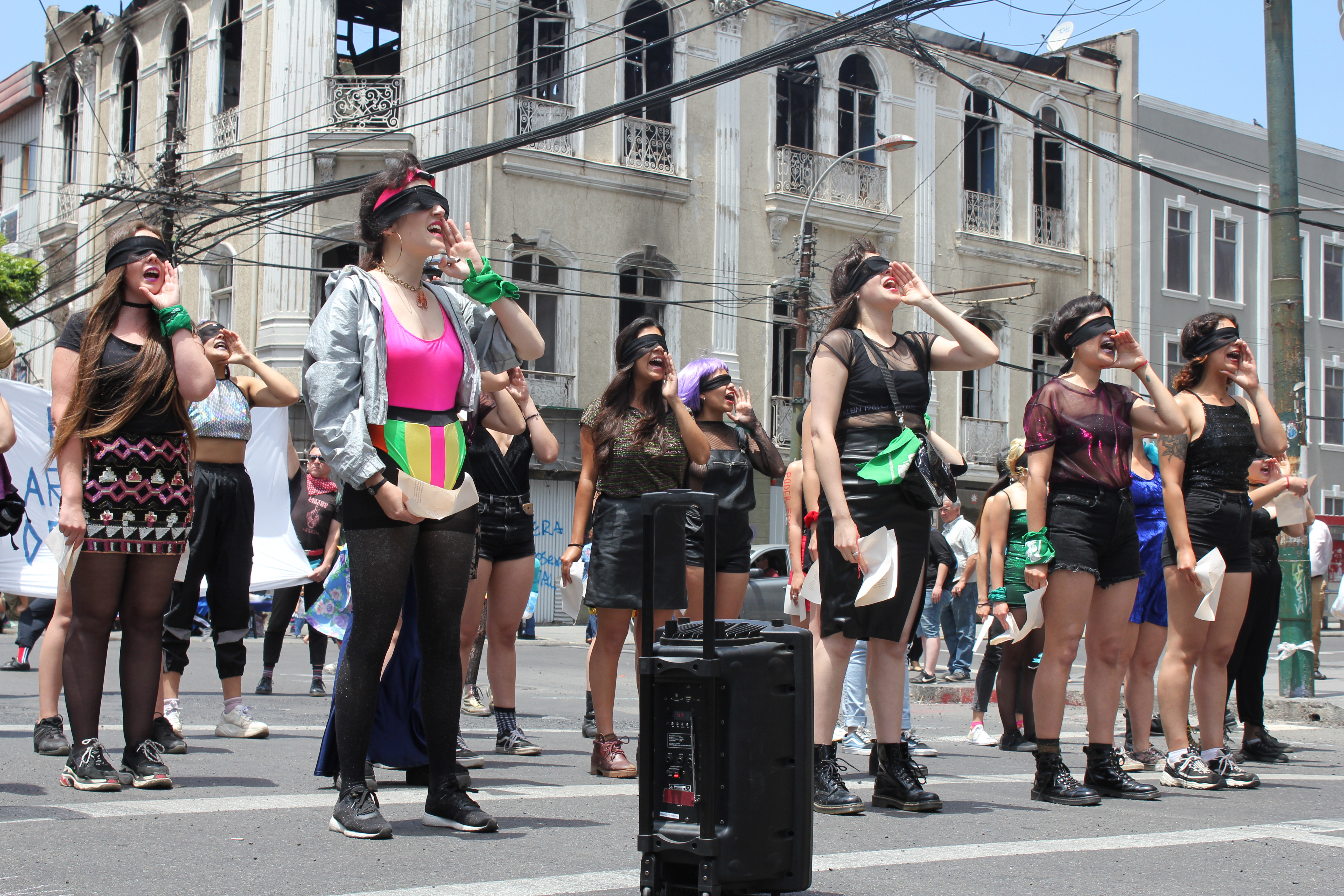
A Rapist in Your Way (‘Un violador en tu camino’) by Colectivo LASTESIS won the awards’ digital category. A protest performance to denounce sexual violence against women and LGBTQ communities, the initiative started in Chile in 2019, and was later replicated in multiple languages across the world. ’When the judges were discussing this entry, we were struck by how powerful it is,’ comments judge Camille Walala. ’The song highlights the use of political sexual violence by the police during a social uprising in Chile, but has since been replicated by feminists in India, Kenya, Mexico and beyond. The rhythm of the chant, as women stomp their feet and pump their fists, is infectious’
Receive our daily digest of inspiration, escapism and design stories from around the world direct to your inbox.
INFORMATION
Rosa Bertoli was born in Udine, Italy, and now lives in London. Since 2014, she has been the Design Editor of Wallpaper*, where she oversees design content for the print and online editions, as well as special editorial projects. Through her role at Wallpaper*, she has written extensively about all areas of design. Rosa has been speaker and moderator for various design talks and conferences including London Craft Week, Maison & Objet, The Italian Cultural Institute (London), Clippings, Zaha Hadid Design, Kartell and Frieze Art Fair. Rosa has been on judging panels for the Chart Architecture Award, the Dutch Design Awards and the DesignGuild Marks. She has written for numerous English and Italian language publications, and worked as a content and communication consultant for fashion and design brands.
-
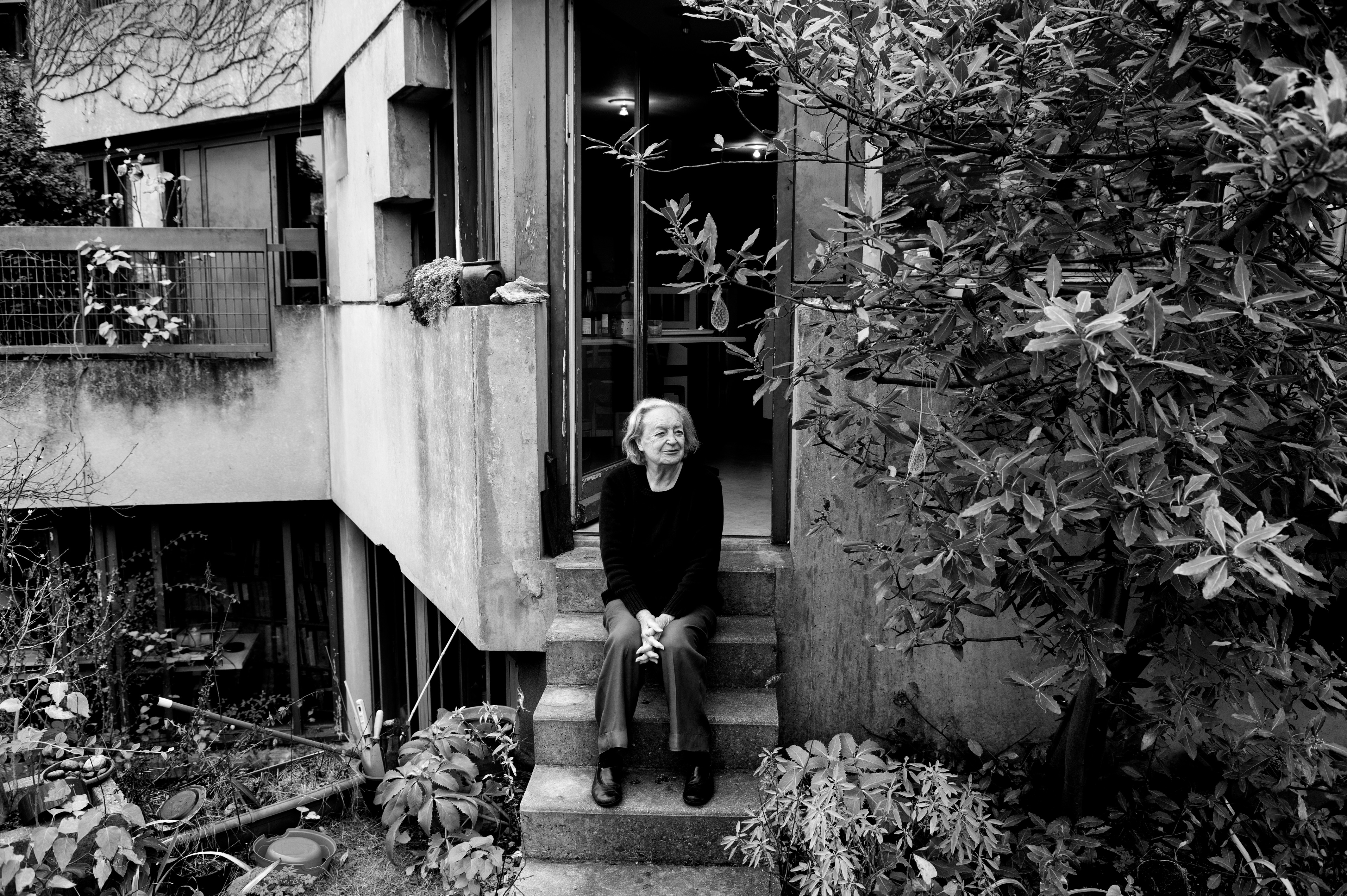 Discover Renée Gailhoustet and her radical approach to socially engaged housing
Discover Renée Gailhoustet and her radical approach to socially engaged housingThe Algerian-French architect thrived on creating bespoke designs and remarkable social housing; a new exhibition at the Architectural Association in London revisits the case study of Le Liegat in Paris
-
 The mighty new Akai Professional MPC XL is a pro-grade music studio in a box
The mighty new Akai Professional MPC XL is a pro-grade music studio in a boxPacking 40 years of music tech experience into a single all-singing device, the MPC XL is Akai’s new flagship studio tool
-
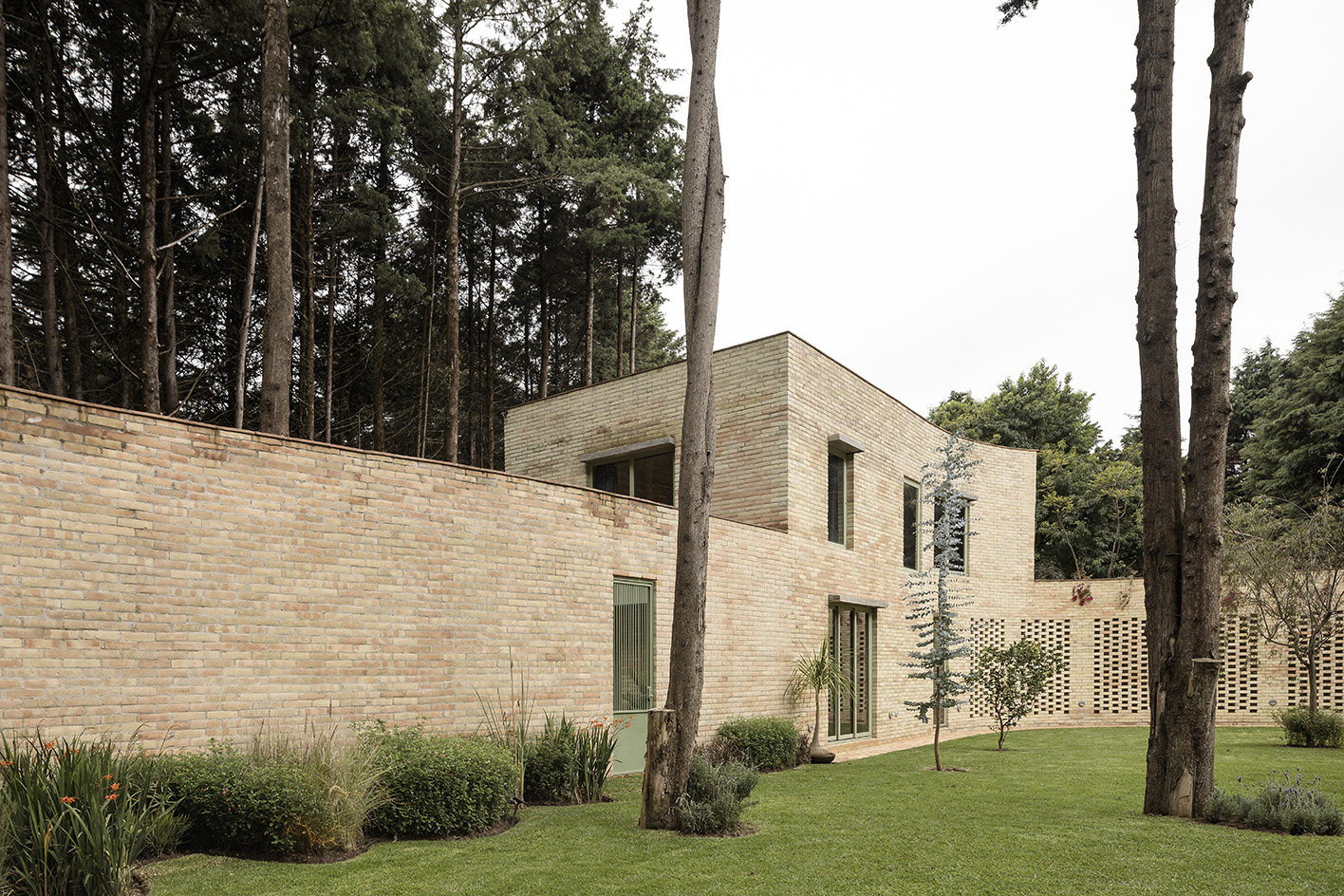 This Mexican retreat brings sand-coloured brick curves into a dense pine forest
This Mexican retreat brings sand-coloured brick curves into a dense pine forestCrafted in tactile, local brick, Casa Jajalpa by Lanza atelier embraces its forest setting; we revisit the story from the Wallpaper* archives as it’s announced that the architects will design the Serpentine Pavilion 2026
-
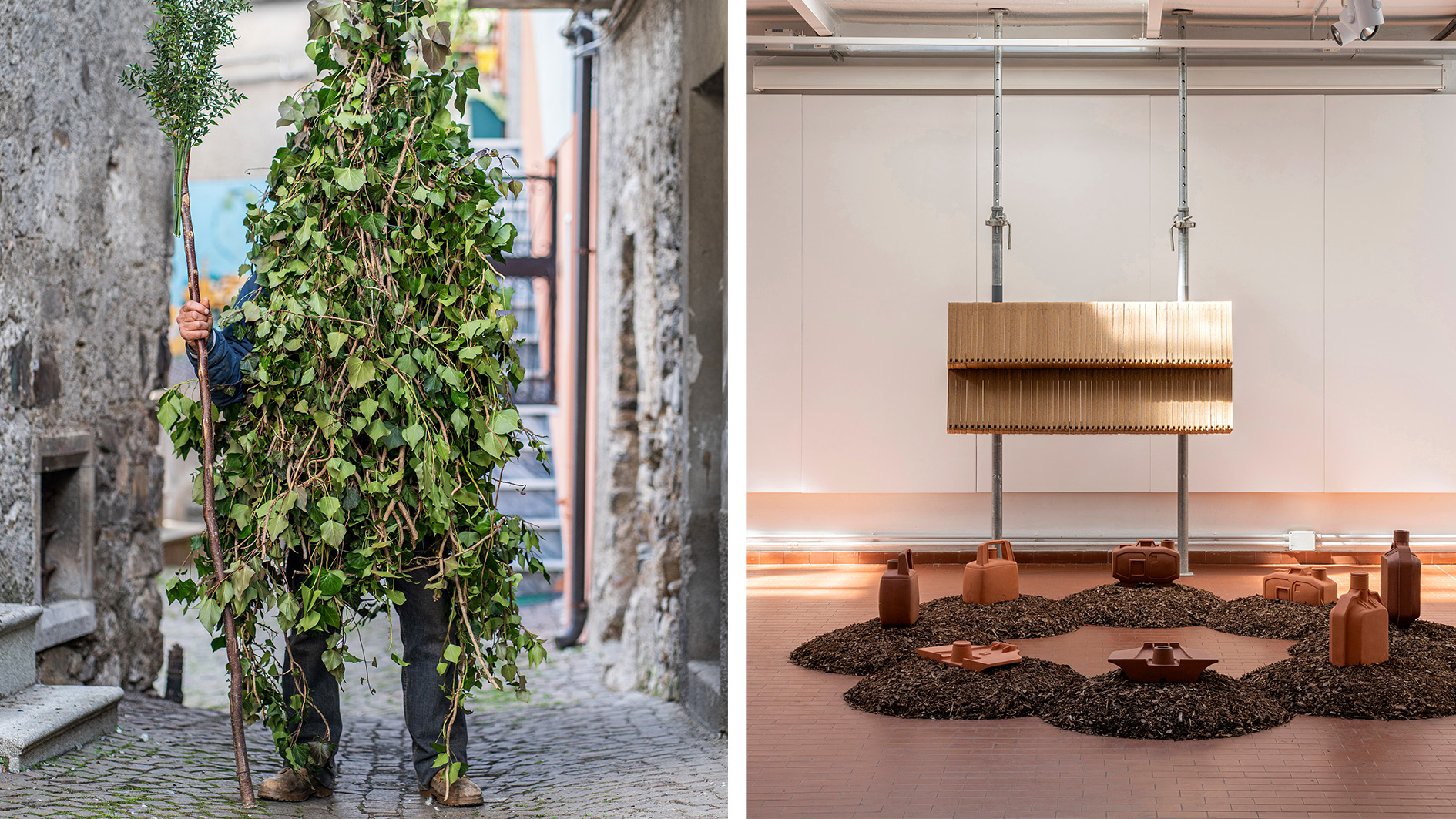 Design beyond humans: a new exhibition argues that the world doesn’t revolve around us
Design beyond humans: a new exhibition argues that the world doesn’t revolve around us‘More Than Human’ at London's Design Museum (until 5 October 2025) asks what happens when design focuses on the perspectives and needs of other species, from bees to seaweed
-
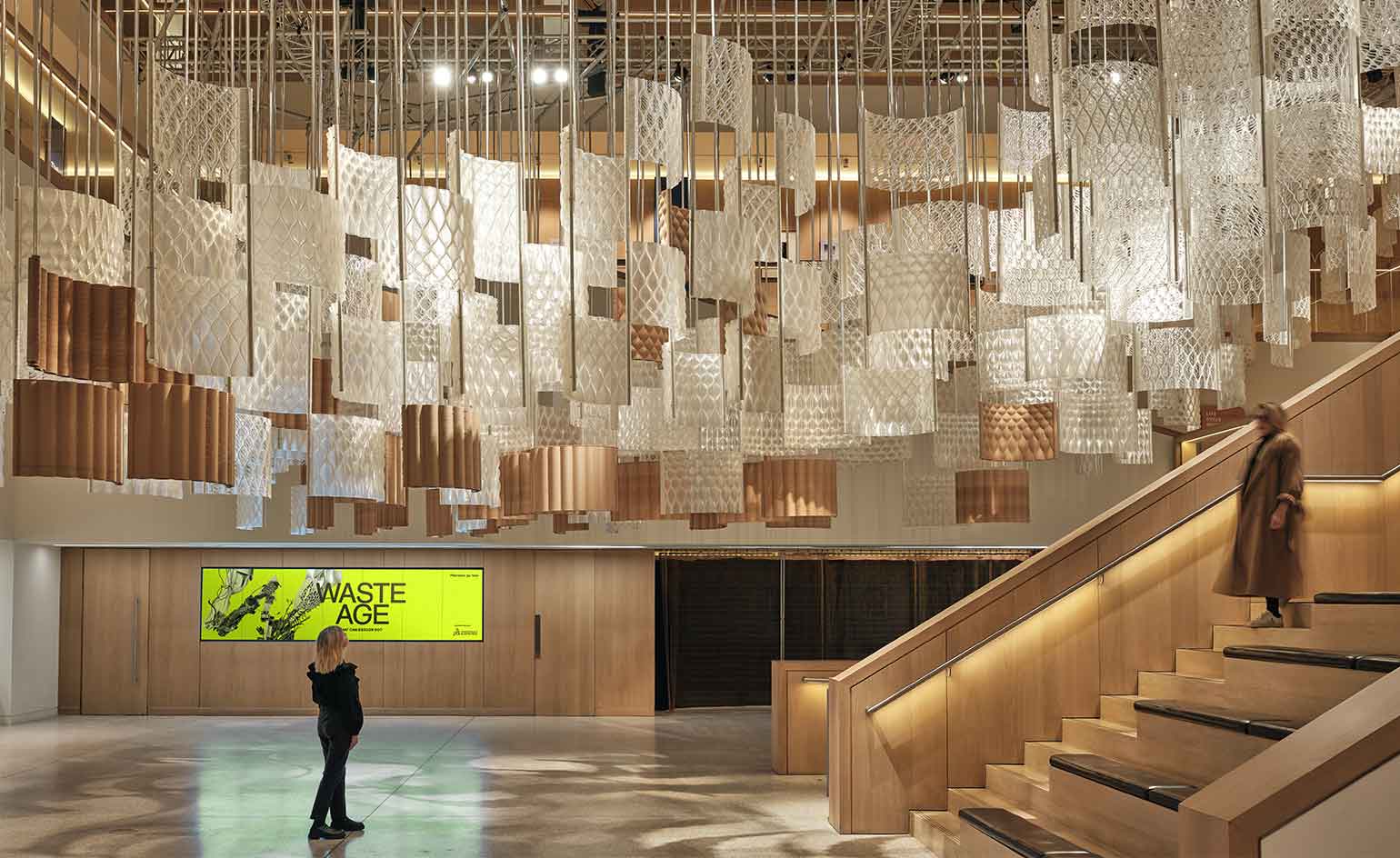 Design Museum exhibition puts waste front and centre
Design Museum exhibition puts waste front and centre‘Waste Age: What Can Design Do?’ at the Design Museum, London (until 20 February 2022), presents design’s proposals and solutions to the issue of waste
-
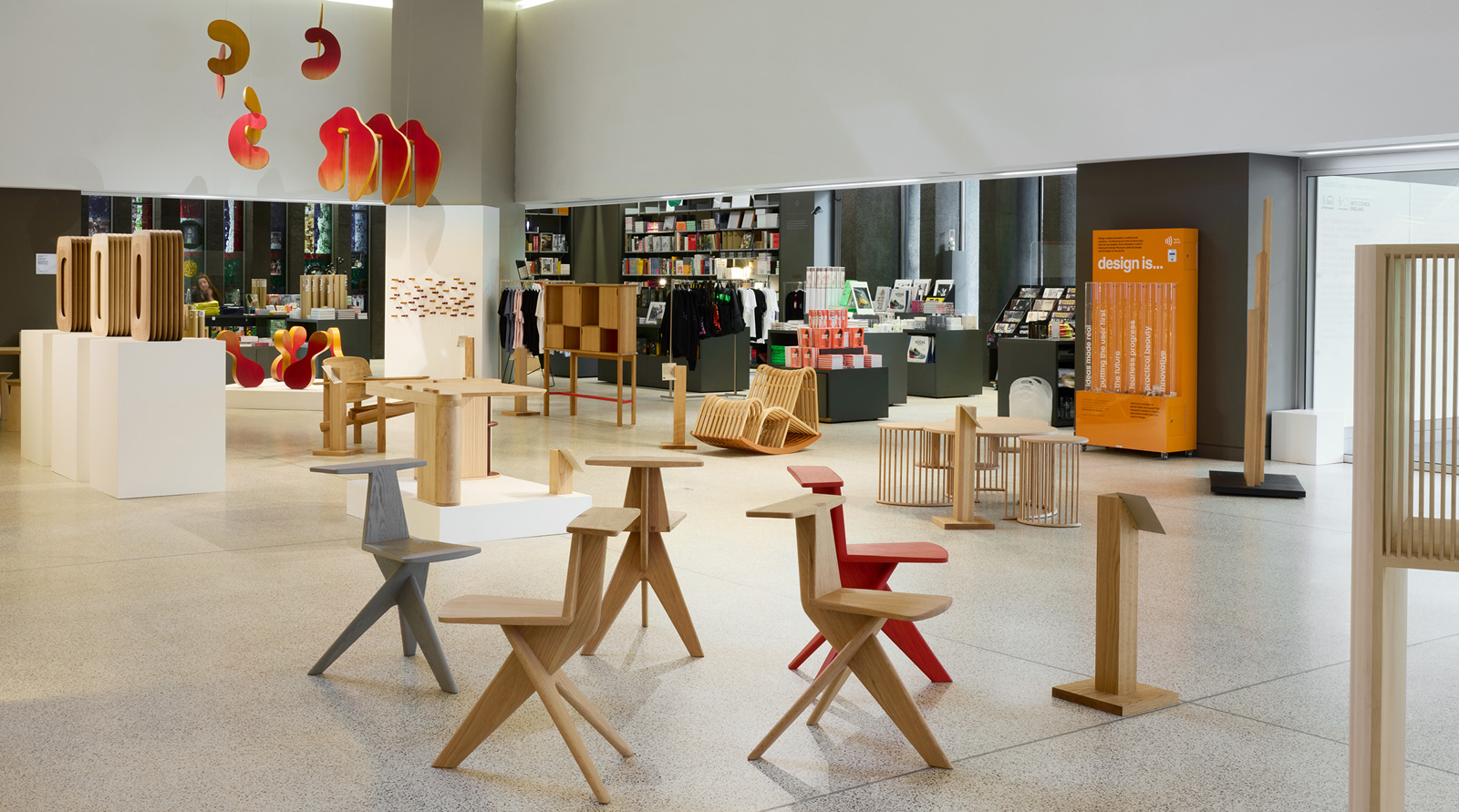 Discovered champions new talent at Design Museum
Discovered champions new talent at Design MuseumTwenty next-generation designers unveil works in sustainable wood as part of Discovered, a collaboration between AHEC and Wallpaper*, presented at the Design Museum, London
-
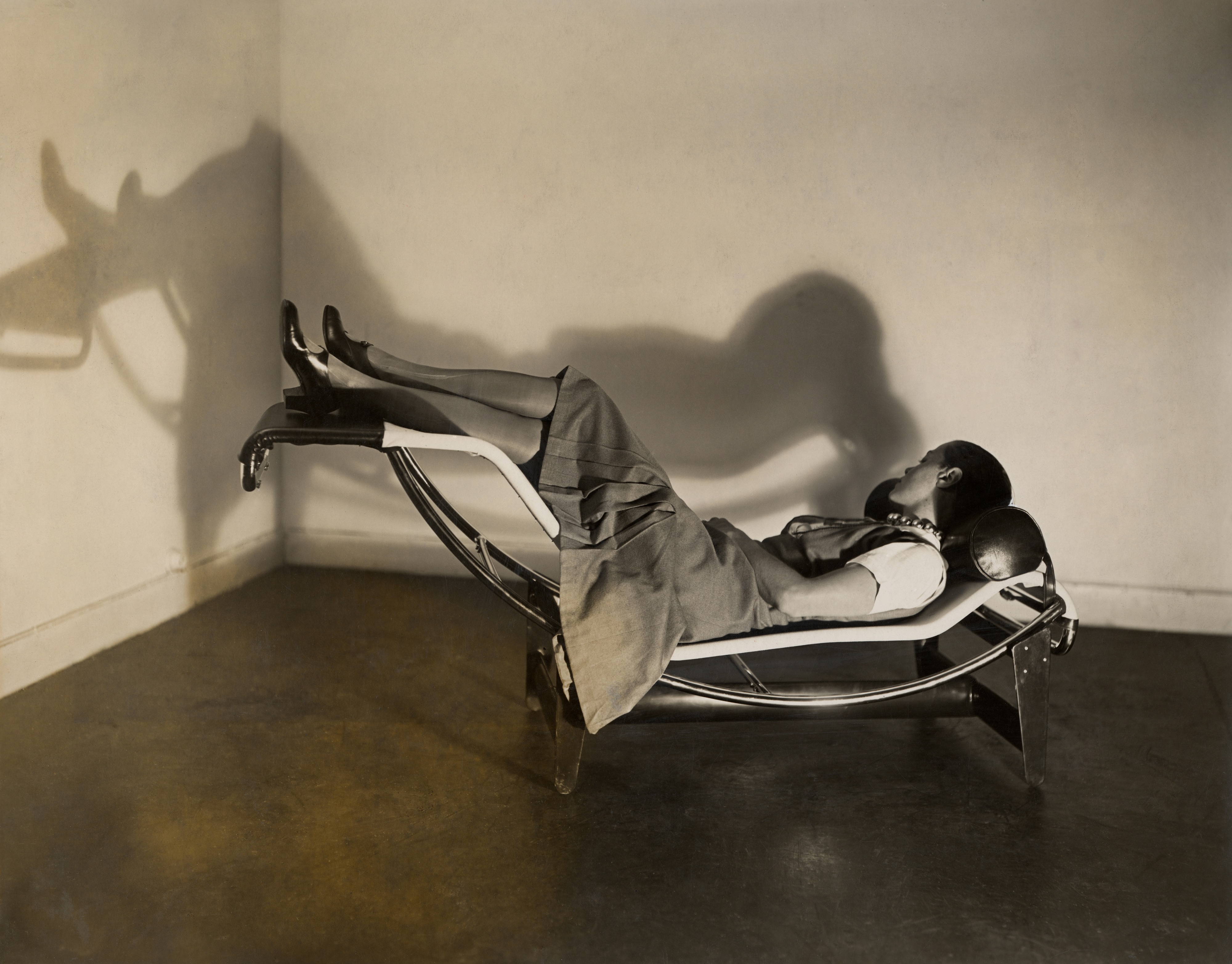 Charlotte Perriand’s life and work explored at London’s Design Museum
Charlotte Perriand’s life and work explored at London’s Design MuseumLondon’s Design Museum presents ‘Charlotte Perriand: The Modern Life’, an exhibition turned the spotlight on one of the most iconic creators of the 20th century
-
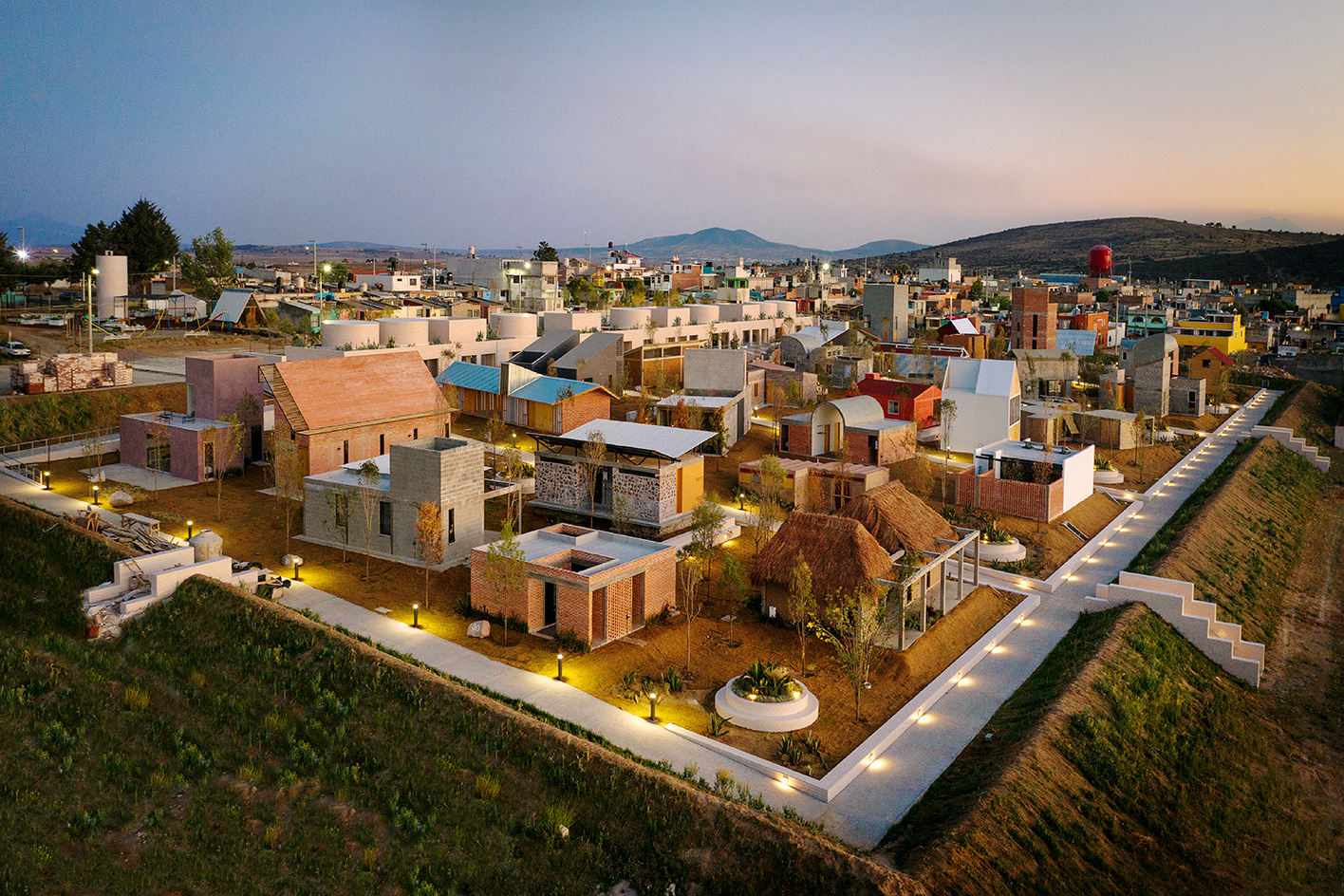 Beazley Designs of the Year is a blueprint for our turbulent year
Beazley Designs of the Year is a blueprint for our turbulent yearCurated by Emily King, the Beazley Designs of the Year exhibition captures how design has responded to social justice, climate change and Coronavirus
-
 Meet the Design Museum’s all-female Designers in Residence
Meet the Design Museum’s all-female Designers in ResidenceThe multidisciplinary cohort includes Enni-Kukka Tuomala, Abiola Onabule, Cynthia Voza Lusilu and Ioana Man, who developed a series of multidisciplinary projects with the Design Museum, responding to the theme of ‘Care'
-
 Design Museum's tribute to club culture reopens post lockdown
Design Museum's tribute to club culture reopens post lockdownArt, photography, typography, shape shifting installations and music come together at Design Museum’s ‘Electronic: From Kraftwerk to The Chemical Brothers’
-
 Beazley Designs of the Year 2019 winners announced
Beazley Designs of the Year 2019 winners announcedAt the Design Museum ceremony in London tonight, Muji, Pentagram and Adidas are among the winners of the coveted Beazley Designs of the Year 2019